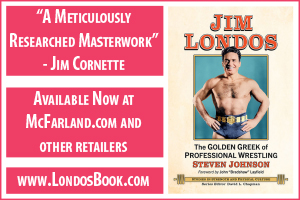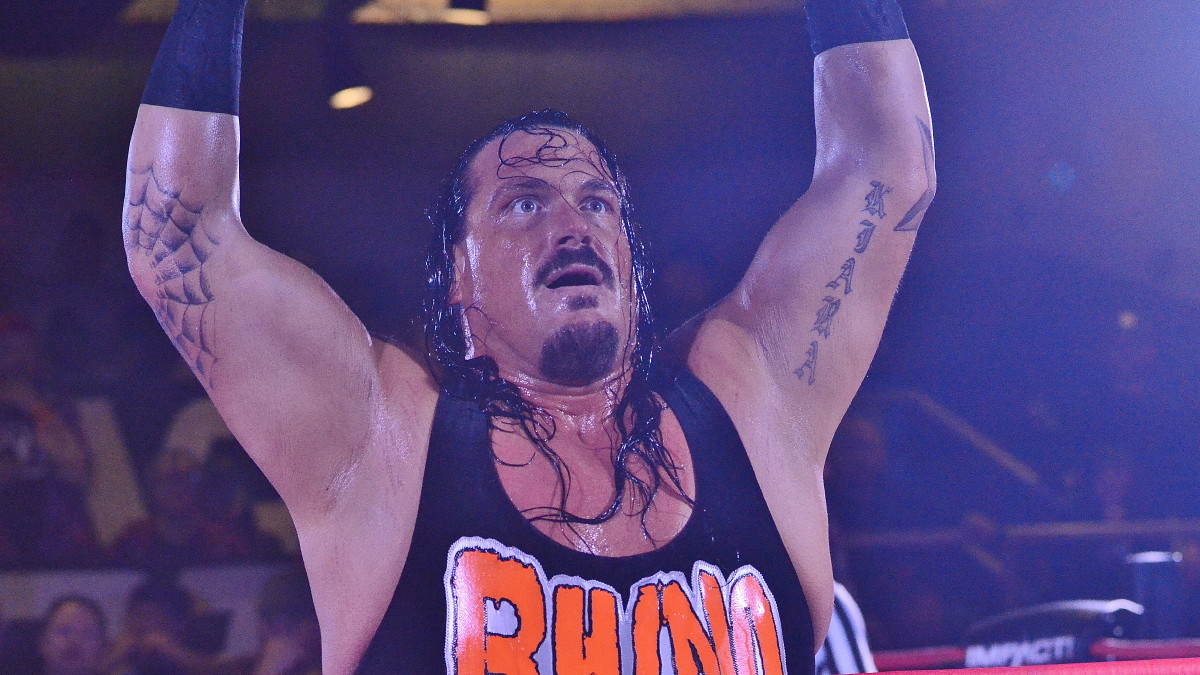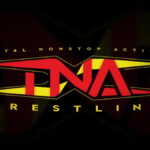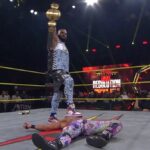For some, it was a certified pain in the ass. For others, it was necessary to screen out those who had the commitment and financial resources to run a proper live event.
Whatever your opinion is on professional wrestling being regulated in Ontario, it’s irrelevant now.
Commissioner Ken Hayashi of the Ontario Athletic Commission (OAC), a branch of the Ministry of Government Affairs (formerly the Ministry of Consumer and Business Services), confirmed that his office is getting out of the wrestling business. “It’s been de-regulated as of May 10th,” stated Hayashi in an interview with SLAM! Wrestling. “It’s been something we’ve been considering for a while. There’s been a lot of requests from promoters for de-regulation. The bottom line is there were no real health and safety regulations (to oversee), that’s the main thrust of this office. Wrestling is choreographed, pre-arranged. I think we are the only jurisdiction in Canada that still regulates it. It was just a matter of time and that time has come; we no longer regulate professional wrestling.”
That means promotions in the most populated province in Canada are no longer required to have liability insurance, pay a $1,000 security deposit to the OAC and licensing fees (ranging from $75 to $300 depending on the population of the community where the event was held).
“That will be refunded, providing their accounts are up to date,” said Hayashi with reference to the security deposit.
Promotions will still be obligated to submit a 2% gate tax based on revenue generated from the live events, which the OAC will still collect, payable to the Minister of Finance.
As for the wrestlers, they will no longer be required to pay the annual $75 license fee to legally wrestle. There will be no refunds to wrestlers who paid their license fee for the year, although any additional fees that are paid after May 10 will be refunded.
According to Hayashi, it was the Ministry of Government Affairs that ultimately may the call to de-regulate the industry. In doing so, it will provide the OAC more time focus on legitimate fighting sports.
“By freeing it up (from wrestling), it actually gives the office of the athletics commissioner more time to concentrate on the combative sports such as boxing and kickboxing,” he said. It should be noted that mixed martial arts is currently illegal in the province.
It was only in recent years that the OAC was taken to task with it’s involvement in professional wrestling. It came in the form of a complaint filed to the Ontario Human Rights Commission by Montreal wrestler LuFisto (real name Genevieve Goulet). Specifically, she contested the regulation forbidding contact between male and female participants in the ring.
“I’m surprised, but I’m not surprised,” said LuFisto in reaction to the decision to de-regulate wrestling. Just this past weekend, LuFisto participated in several matches in Ontario, wrestling with male opponents no less.
“When I filed my complaint, I had so many good points about why the OAC should not have any power regulating something that was choreographed. How can you stop me from doing something that I’ve trained for? I’m an adult and I know what I’m doing. That’s good news (de-regulation); they aborted not only what I was fighting against, but everything that has to do with professional wrestling. I really hope to get more bookings in Ontario and I hope all the good workers will get more bookings too.”
What role LuFisto’s complaint played in prompting the OAC’s decision can only be speculated. But what is not in doubt is that for many within the industry, it’s time to break out the champagne.
“Fantastic. This is going to bring independent wrestling back to a lot of places. A lot of new companies are going to be able to start up and there will be more places for guys to work,” said Damian Styles, one half of the Ontario based tag team, Aftershock.
Less than a year ago, Styles (real name Dean Danis) started his own promotion called Rage Wrestling Entertainment (RWE). Having run only two shows in Ontario, the promotion was isolated to organizing live events in Gatineau, Quebec where there are no regulations.
“From a business standpoint, independent wrestling is a tough sell, it’s hard to get a lot of people out for a show in volume,” said Styles, who is already planning to run more shows in the Ottawa area.
“You had to pay a $300 permit fee for any city. By the time you calculate renting the hall, your insurance in place, you pay your guys, you’re looking at $1,500 just to get a show on the road.”
To combat those costs, RWE would focus on running shows in smaller communities where the event fee to the OAC was lower and collaborate with charitable organizations to cover costs such as venue rental.
That, however, will no longer be the case and as one can see at the events page from the Ontario independent wrestling website, a surge in live events has already taken root.
“I’m conflicted actually,” said veteran independent wrestler Derek Wylde (real name Dennis Stewart). “It’s not cut and dry. On one hand, I love the fact we don’t have to pay the licenses and it will allow the promoters in the area to run more shows. A lot of the reasons promoters don’t run shows is because it’s hard to get insurance. I know of four or five promoters who go in together and share insurance because they can’t afford it on their own. This will allow promoters to run without insurance, which I don’t know if it’s a good or bad thing.”
The obligation will now fall on building owners to ensure promotions do have insurance. Just how many will do so, nobody can say, but Wylde doesn’t see it being a major hurdle.
“Honestly, I’ve never heard of an actual venue asking for insurance,” stated Wylde. “If one venue asks for insurance, they (the promotion) can just find another venue. There could even be some people who will show they have insurance, but who says it’s valid? I’m not saying they’re all scoundrels, but promoters sometimes will do anything to get away with making some money.”
Inevitably it seems, promotions will begin to have events that conflict with each other, creating a potential rivalry for the services of top tier indy wrestlers. With promotions no longer having to pay large sums of money to the OAC, better pay days may lie ahead. Wylde noted there has already been discussion between himself and other wrestlers about asking for more money.
“I think they want to start asking for more money, but they want to do it as a group,” he confirmed. “They don’t want to outbid each other, but if we’re going to be the top guys, we want to be paid a certain minimum amount. Whoever agrees to pay what we’re asking first, then that’s the one we go with on the specific date.”
But Wylde is all too aware of the reality that some promoters will rebel against paying minimum fees to workers and produce shows with sub par, untrained talent.
“There will be promoters who will be looking to make a lot of money and will use guys who are not trained, who will work for free and just run sub-standard shows,” Wylde said. “These kinds of promotions could literally kill territories; kill cities left and right, leaving them unusable for any promoter to ever come into. Some fly by night operation, bring all the cheapest guys they can find, don’t check up on their background and have them go in there and hurt themselves, hurt somebody in the audience. Then you’ll have people screaming there should be commission when we just got rid of it.”
In the past, the OAC has fined promoters such as Kevin Oakley, Nick (Nitro) Wyman and Frederick ‘Bruiser’ Leeks for licensing offences. Other fly-by-night promoters, such as Doug Feltom from outside of London, Ontario, have been harder for the OAC to nail down and fine.
Ultimately, it’ll be the promotions within the borders of Ontario to decide if de-regulation is best for the industry.
“It’s like a substitute teacher; I’m going to leave the room for a minute, you kids be good,” compared Wylde to the OAC no longer overseeing wrestling promotions. “Then all the kids go crazy because they’ve never been left alone before.”
RELATED LINKS
- March 6, 2006: Female wrestler pins Ontario Athletic Commission
- June 9, 2003: Inter-gender turmoil in Ontario
- SlamWrestling.net’s LuFisto story archive











